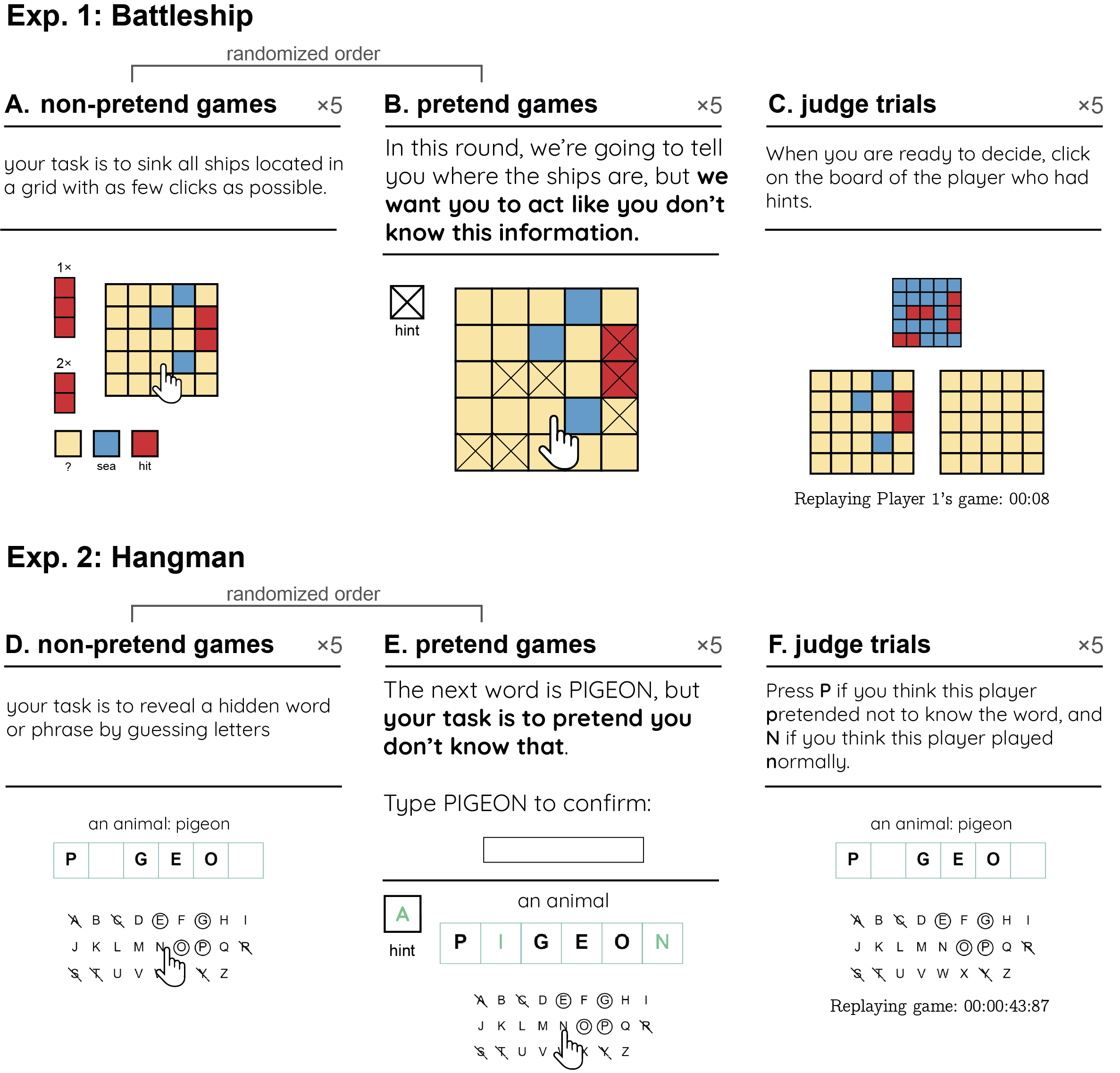Matan Mazor 🙈, Chaz Firestone 🙉 & Ian Phillips 🙊
A series of experiments looking at people's ability to pretend they don't know something.
Raw data from all four experiments is available on the project's OSF repository: osf.io/zma9b/.
All pre-registered analyses, exploratory analyses, and the paper itself in a data-to-paper Rmarkdown format are available in the 'docs' subdirectory.
The outputs of the scripts are available in gitbook format (both preregistered and exploratory analyses).
You can try demos of the two experiments, as experienced by our participants.
OSF pre-registrations are available for Battleship and Hangman.
To ensure preregistration time-locking (in other words, that preregistration preceded data collection), we employed randomization-based preregistration. We used the SHA256 cryptographic hash function to translate our preregistered protocol folder (including the pre-registration document) to a string of 256 bits. These bits were then combined with the unique identifiers of single subjects, and the resulting string was used as seed for initializing the Mersenne Twister pseudorandom number generator prior to determining all random aspects of the experiment, including the order of game boards (grid configurations or target words) presented to participants, and their assignment of boards to experimental conditions. This way, experimental randomization was causally dependent on, and therefore could not have been determined prior to, the specific contents of our preregistration document (Mazor, Mazor & Mukamel, 2019).
protocol sum: 60c270410375e8a192468fc1a0e9c93da60d5e203eb2760b621a8631a26f4c5c
relevant pre-registration lines of code
protocol sum: c4929c7fe33df1b7b52f15c789d98eab30a9cee09a8121807a3c59e28e7430a4
relevant pre-registration lines of code

